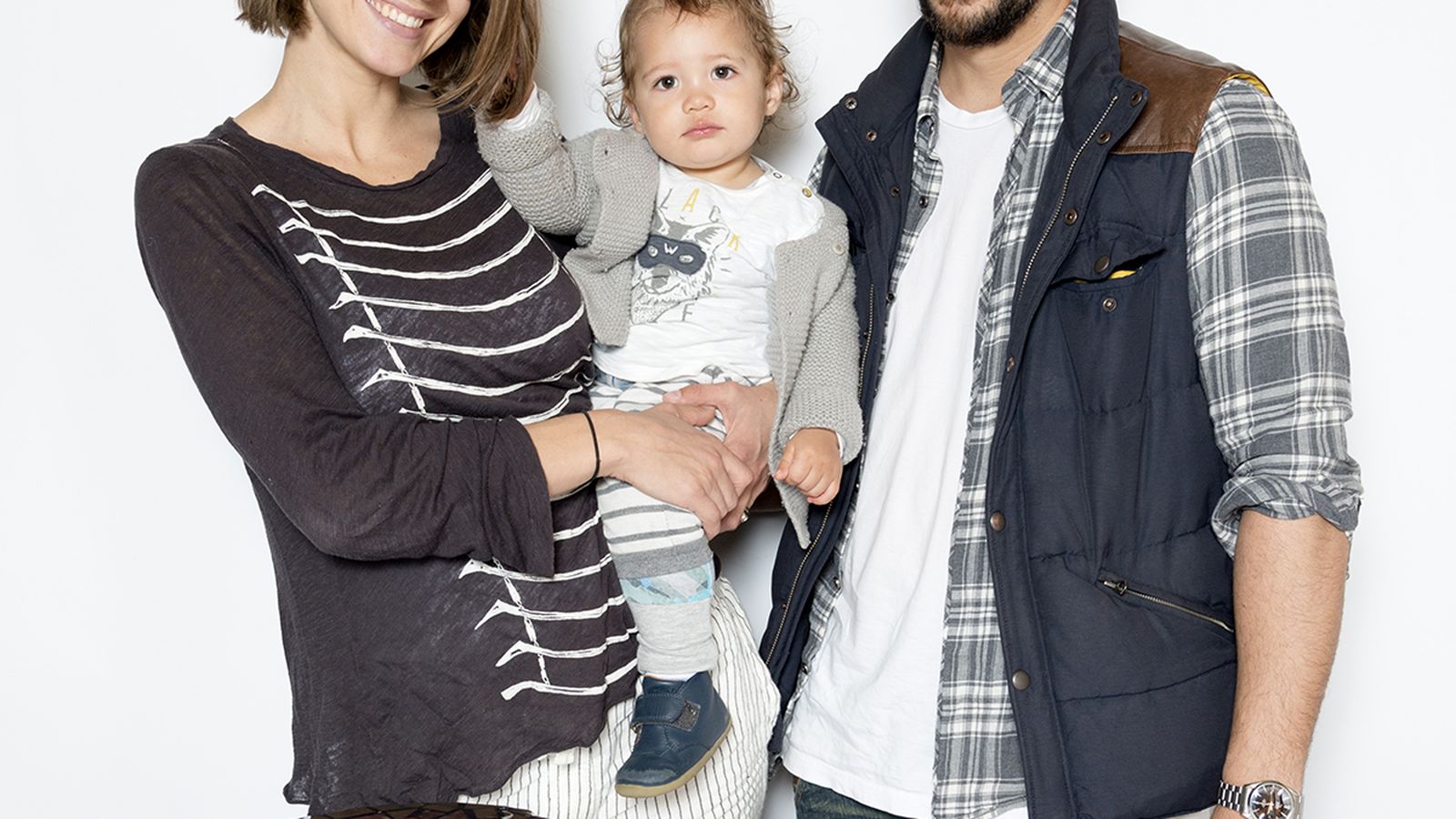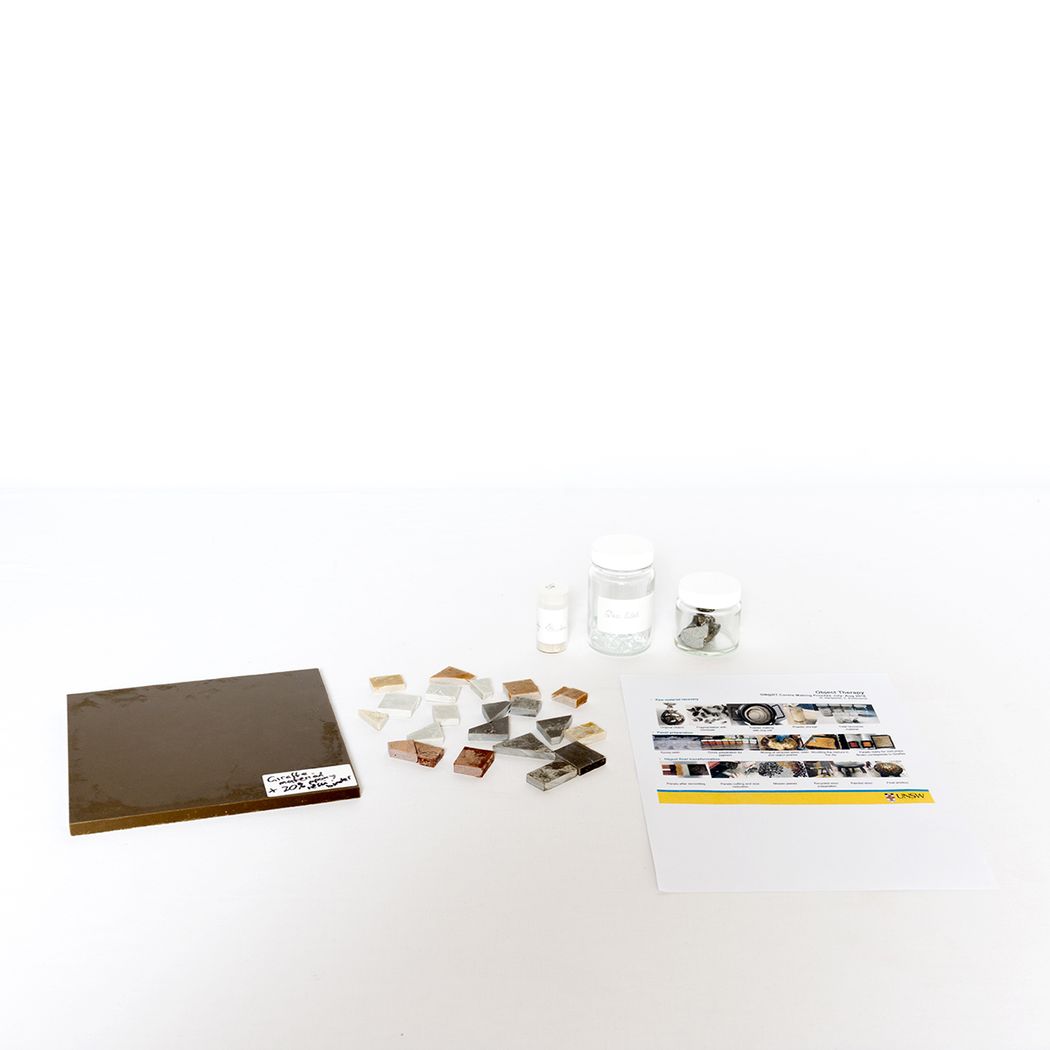Karolina's Giraffe
Repaired by SMaRT@UNSW

While learning to walk, Karolina’s son broke this object in a local store and Karolina was coerced into buying the broken object for $69.95 (a figure she thought was overpriced). Karolina has no attachment to the object. She disliked its appearance and was annoyed she had to buy it. She had no idea what to do with it. Should she send it straight to landfill or hide it in a cupboard somewhere? The story of Karolina’s giraffe raises a serious topic – what do we do with meaningless objects we don’t like and don’t want?
The object was sent to the Centre for Sustainable Materials Research and Technology at the University of New South Wales (SMaRT@ UNSW) an organisation dedicated to the development of new solutions for managing and transforming waste. SMaRT@UNSW analysed the object and solved the mystery of its strange fabrication, identifying it as natural stone. They broke down the base material and produced a stone sheet from it. From this sheet, they produced a mosaic top and applied to a stool. Through the repair, SMaRT@UNSW presents some new possibilities for object recycling.
Design Repairers: SMaRT@UNSW
Founded in 2008 by ARC Laureate Fellow Scientia Professor Veena Sahajwalla, the Centre for Sustainable Materials Research and Technology (SMaRT) at the University of New South Wales works with industry, SMEs, global research partners, NGOs, local, state and federal government, policy makers and the community on the development of innovative environmental solutions for the world’s biggest waste challenges. Veena, as one of the world’s leading innovators in the field of sustainable materials and an international award-winning scientist and engineer, is passionate about transforming waste produced by modern society into value added green materials. She is well known to Australians through her regular appearances as a judge on the long-running ABC TV series The New Inventors.
SMaRT’s contribution to Object Therapy is being coordinated by SMaRT researcher Dr Farshid Pahlevani, a metallurgical scientist with international experience and expertise in patent development. His research is focused on the utilisation of waste as a raw material and includes collaborations investigating the transformation of household waste into metallic alloys. Farshid is being assisted by PhD researchers Claudia Echeverria, an architect, textile artist and eco-social entrepreneur investigating the recovery of waste fibres for the development of novel wood-plastic bio-composites, and Heriyanto, who researches glass recycling for the development of polymeric glass composites for building applications.
Explore Object Therapy here
Karolina's Giraffe. Repaired by SMaRT@UNSW. Photos by Lee Grant. Image copyright Hotel Hotel.

